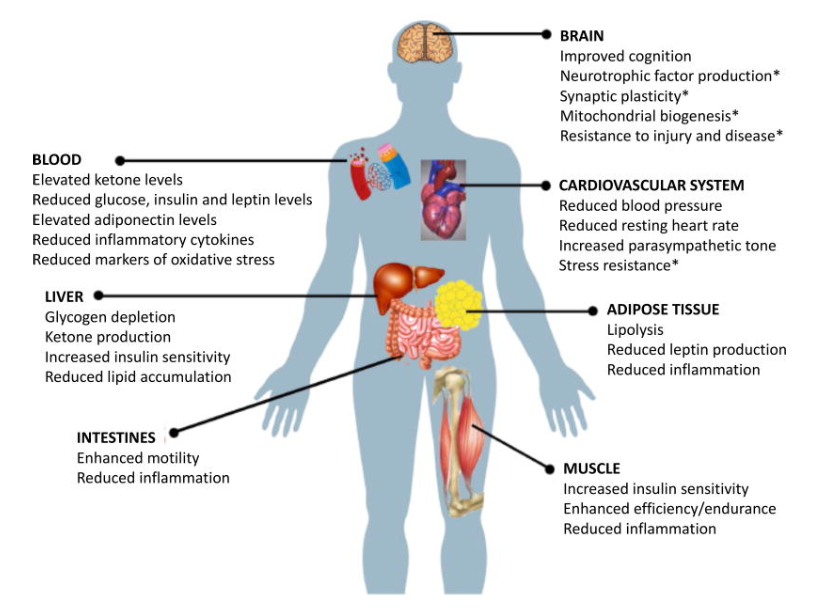Introduction
We strive too hard to shed stubborn fat and tries almost everything right from fad diets to intense exercise routine that doesn’t suffice. “The best of all medicines is resting and fasting”- Benjamin Franklin. There comes the magic of intermittent fasting.
Several studies have demonstrated the powerful effects on the brain and body due to intermittent fasting. Let us understand the intermittent fasting diet plan and its impact on the human body.
What is Intermittent Fasting?


Intermittent Fasting Methods

There are several variations of intermittent fasting, so always choose the one that fits our specific lifestyle and health goals. Below are some popular IF plans:
A Diabetes Reversal Program typically involves the
following components:
1. 16/8 Method:
- Fast for 16 hours a day and restrict eating to an 8-hour window; for example: eat between 12:00 PM and 8:00 PM and fast from 8:00 PM to 12:00 PM the next day.
- Abstain from food for the remaining 16 hours, with drinking water and no-calorie beverages, like plain coffee or tea.
- It helps lose weight, burn fat, blood sugar control and enhance longevity.
- Choose a window that suits the daily schedule- 7 a.m. to 3 p.m., 9 a.m. to 5 p.m., 12 p.m. to 8 p.m., 2 p.m. to 10 p.m.
- Include nutritious whole foods and beverages during the eating periods.
2. 5:2 Method:
- In this diet technique, we can eat normally five days a week.
- On two non-consecutive days, consume only about 500-600 calories by eating two small meals with low-calorie food.
- Women are supposed to have about 500 calories on fasting days, while men have about 600.
- Make sure to spread the fasting days throughout the week- for example, Tuesday and Thursday, so they are not consecutive and spread evenly.
- When we limit our calorie intake, the body utilizes the glycogen stored in our liver to keep our blood sugar levels stable.
3. Eat-Stop-Eat:
- In this, we should do a 24-hour fast once or twice a week. For example, eat dinner one day and then refrain from eating until dinner the next day.
- This calorie deficit will lead to weight reduction.
- But this will only work if we do not indulge in junk cravings when allowed to eat.
4. Alternate-Day Fasting:
5. The 14:10 diet:
- This intermittent fasting diet plan is similar to the 16:8 method but involves fasting for a 14-hour window and eating for 10.
- For example, if you start eating at 8:00 AM, finish the meals and snacks by 6:00 PM. After that fast until 8:00 AM the next day, and the cycle continues.
- Health benefits include improved insulin sensitivity and fat metabolism.
6. The Warrior Diet:
- This intermittent fasting weight loss diet advises fasting for 20 hours and eating a large meal within a 4-hour eating window in the evening.
- This diet differs from other diets as it involves eating only small portions of raw fruits and vegetables during the day, then feasting on one huge meal at night within a 4-hour eating window.
Which intermittent fasting method is best for weight loss?

- The best intermittent fasting method for weight loss depends on an individual’s lifestyle, preferences and how well they can adhere to the fasting schedule.
- A sustainable calorie deficit is burning more calories than one consumes.
- The 16/8 Method is one of the most popular and practical fasting methods for weight loss, as it’s not overly restrictive, easier to follow and allows for regular daily eating patterns.
- The 5:2 method in intermittent fasting weight loss technique is effective due to the reduced calorie intake on fasting days.
- In the Eat-Stop-Eat method, a full 24-hour fast is done once or twice a week. By cutting out an entire day’s worth of calories, it is easier to create a calorie deficit and lose weight.
- Alternate-Day Fasting includes fasting every other day or consuming very few calories (around 500) on fasting days. Research points out that if a person needs to lose quick weight in a short duration of time, ADF is beneficial.
- Consuming nutritious, whole foods, maintaining a balanced diet during the periods allowed to eat, consistency and adherence to the schedule etc., determines its efficiency.
Benefits of intermittent fasting?

IF is popular due to its main benefits which are listed below:
- 1. Weight loss and fat loss: Intermittent fasting can help create a calorie deficit, leading to weight loss. Additionally, fasting may increase the body’s ability to burn stored fat for energy. It is easier to lose belly fat and visceral fat.
- 2. Improved insulin sensitivity: IF can lead to reduced blood sugar levels and improved insulin sensitivity, which may lower the risk of type 2 diabetes. Intermittent fasting diets have therapeutic effects on blood glucose and lipids in patients with metabolic syndrome and significantly improve insulin resistance. It may be considered as an auxiliary treatment to prevent the occurrence and development of chronic diseases.
- 3. Enhanced cellular repair and autophagy: Fasting stimulates autophagy, a cellular process that removes damaged cells and proteins, promoting cellular repair and renewal. It increases the antioxidant levels that fight against the free radicals which cause cell damage and lead to various health issues and skin conditions linked to ageing.
- 4. Cardiovascular health: Some studies suggest IF may help improve heart health by reducing risk factors like blood pressure, cholesterol levels and inflammation.
- 5. Brain health and cognition Studies suggest fasting may promote the production of brain-derived neurotrophic factor (BDNF), a protein that supports brain health, learning, neuroplasticity and brain resistance to injury and disease.
- 6. Reduced inflammation: Studies suggest IF causes decreased markers of inflammation linked to various chronic diseases.
Do’s and Don’ts of Intermittent Fasting

Do’s of Intermittent Fasting that helps us stay on track and maximise the benefits of intermittent fasting are:
- Stay hydrated: Drink plenty of water and other non-caloric beverages during fasting periods to stay hydrated.
- Choose nutritious foods: Opt for whole, nutrient-dense foods rich in protein, fibre, and healthful fats in the intermittent fasting diet plan.
- Listen to your body: Pay attention to hunger and fullness cues and eat until satisfied and not overly stuffed.
- Start slowly: If new to intermittent fasting, begin with a less restrictive fasting schedule and gradually increase the fasting period as the body adapts.
- Consult with a healthcare professional: Before starting intermittent fasting, especially in case of any underlying health conditions, consult with a healthcare professional to ensure it’s safe.
- Combine with exercise: Incorporate regular physical activity into the routine to enhance the benefits of intermittent fasting, support weight loss and overall health.
- Resting and relaxing: Avoid strenuous activities on fasting days. Light exercise like yoga may be beneficial.
The Don’ts of Intermittent Fasting include:
- Don’t overeat during eating windows: Intermittent fasting does not permit indulging in unhealthy, high-calorie foods during your eating periods.
- Avoid constant snacking: Constantly snacking during the eating window may hinder the benefits of fasting, so stick to designated meal times.
- Don’t overlook nutrient intake: Intake enough essential nutrients, vitamins, and minerals during the eating window to support overall health.
- Don’t expect immediate results: Weight loss may not be immediate with intermittent fasting, so avoid checking for daily fluctuations on the scale.
- Avoid excessive caffeine: While moderate caffeine intake (e.g., black coffee) is generally fine during fasting, avoid excessive amounts that could disrupt sleep or cause other health issues.
- Don’t ignore body signals: If fatigued, dizzy, or experiencing severe hunger during fasting, break the fast and eat if needed.
Conclusion
Satva Speciality Clinic And Preventive Health Centre is a wellness clinic in Bangalore that helps restore health or achieve true wellness. We implement nutritional changes, intermittent fasting weight loss techniques, lifestyle changes, meditation and other natural methods. The methods adopted are scientific, evidence-based, minimally invasive and beneficial for people of all ages with almost all health situations.
Dr Vishwanath B.L, MBBS, MD, the senior physician, is also an Intermittent Fasting and Lifestyle Disease Recovery Specialist. We have specially designed weight loss programs for men and women. We also provide a 12 weeks program, 6 Dietician consultations with continuous support through Whats App.
Click here to know more!
 +91 9164688217
+91 9164688217 080-8035875605
080-8035875605
 Time 7.30 am to 9 pm (Monday to Saturday)
Time 7.30 am to 9 pm (Monday to Saturday) Time 8 am to 1 pm (Sunday)
Time 8 am to 1 pm (Sunday) Satva speciality clinic and preventive health centre: RBI Layout, Kothanooru Main Road, J.P. Nagar, 7th Phase Bangalore 560078
Satva speciality clinic and preventive health centre: RBI Layout, Kothanooru Main Road, J.P. Nagar, 7th Phase Bangalore 560078






Leave a Reply